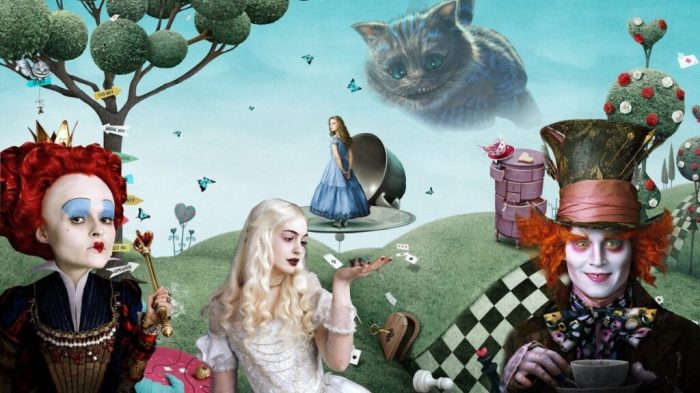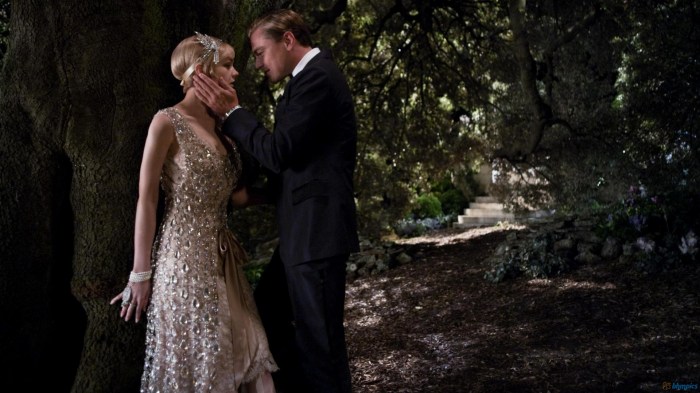Thinking as a hobby william golding – Thinking as a Hobby: A Profound Exploration in William Golding’s Works delves into the intricate portrayal of thinking as a pastime in the literary landscape created by William Golding. This captivating analysis sheds light on the profound philosophical, psychological, and cultural implications embedded within Golding’s narratives.
Golding’s characters embark on introspective journeys, engaging in philosophical contemplation that unravels the complexities of human consciousness. The act of thinking becomes a hobby, a pursuit that shapes their identities and transforms their understanding of the world.
Literary Interpretation

William Golding’s works are renowned for their profound exploration of human nature and the complexities of human behavior. One recurring theme in Golding’s writing is the concept of “thinking as a hobby,” which refers to the characters’ tendency to engage in introspection and philosophical contemplation.
Golding’s characters are often portrayed as deeply reflective individuals who spend considerable time contemplating their own thoughts and feelings. They engage in inner dialogues, questioning their own motives, beliefs, and actions. This introspective nature allows them to gain a deeper understanding of themselves and the world around them.
The Significance of Self-Reflection
Self-reflection plays a crucial role in Golding’s narratives. It allows his characters to confront their own flaws, acknowledge their weaknesses, and come to terms with their own mortality. Through this process, they gain a sense of self-awareness and develop a more nuanced understanding of their own place in the world.
- In Lord of the Flies, Ralph’s introspections reveal his struggle to maintain order and civilization among the increasingly savage boys.
- In The Inheritors, Lok’s reflections on the differences between his tribe and the Neanderthals lead him to question the superiority of his own culture.
The Power of Inner Dialogue
Golding’s characters frequently engage in inner dialogues, where they debate with themselves and explore different perspectives. This technique allows them to consider multiple viewpoints and to gain a more comprehensive understanding of complex issues.
- In Pincher Martin, the protagonist’s inner dialogue with his hallucinated double forces him to confront his own fears and mortality.
- In The Spire, Jocelin’s inner dialogue reveals his conflicting desires for spiritual enlightenment and worldly recognition.
The Complexity of Human Nature
Golding’s exploration of “thinking as a hobby” ultimately serves to highlight the complexity of human nature. His characters are not simply good or evil, but rather complex individuals capable of both noble and base actions. Through their introspections and inner dialogues, they grapple with their own人性, seeking to understand the motivations and consequences of their own behavior.
Philosophical Exploration: Thinking As A Hobby William Golding
Golding’s portrayal of thinking as a hobby reveals profound philosophical underpinnings that explore the nature of human consciousness and the search for meaning. Through this concept, Golding delves into existentialist themes and ideas, challenging conventional notions of purpose and existence.
Existentialist Themes
- Alienation and Absurdity:Golding’s characters often find themselves isolated and disconnected from the world around them, struggling to make sense of their existence in a seemingly meaningless universe.
- Freedom and Responsibility:Thinking as a hobby allows individuals to explore their own thoughts and actions, confronting the weight of personal responsibility and the consequences of their choices.
- The Search for Meaning:Golding’s characters engage in relentless intellectual pursuits, seeking to find purpose and order in a chaotic and unpredictable world.
Nature of Human Consciousness
Golding’s portrayal of thinking as a hobby sheds light on the complex and multifaceted nature of human consciousness. Through the introspective nature of this activity, individuals gain insight into their own thoughts, emotions, and motivations, uncovering the intricate workings of the human mind.
Search for Meaning
In Golding’s works, thinking as a hobby becomes a vehicle for the characters’ search for meaning. By engaging in intellectual exploration, they grapple with existential questions about their place in the universe and the purpose of their existence. Golding suggests that through this process, individuals can uncover a sense of purpose and find solace in the face of an often incomprehensible world.
Psychological Insights

William Golding’s characters engage in thinking as a hobby, revealing complex psychological motivations and behaviors. Introspection plays a significant role in their development and transformation, leading to inner conflicts and psychological complexities.
Introspection and Character Development
- Thinking as a hobby allows characters to delve into their inner thoughts and emotions, leading to self-awareness and personal growth.
- Introspection can also lead to negative outcomes, such as self-absorption, isolation, and a sense of alienation.
- The characters’ relationships with others are often affected by their introspective nature, as they may struggle to connect with others who do not share their intellectual pursuits.
Psychological Complexities and Inner Conflicts
- The characters’ thinking often revolves around themes of morality, justice, and the nature of humanity.
- They grapple with questions about their own identity and place in the world, leading to inner conflicts and a sense of existential angst.
- The characters’ thoughts and actions are often driven by a desire for power, control, or knowledge, which can lead to destructive behavior.
Cultural Context

The cultural and historical milieu of William Golding’s era profoundly influenced his depiction of thinking as a hobby. During his formative years, England was undergoing significant societal and intellectual transformations.
Education and Intellectualism
Golding’s education at Oxford University exposed him to the Western intellectual tradition, emphasizing rational thought, critical analysis, and the pursuit of knowledge for its own sake. This intellectual atmosphere fostered a culture of contemplation and self-reflection, which Golding later incorporated into his literary works.
Social Norms and Expectations
The social norms of Golding’s time dictated that intellectual pursuits were primarily reserved for the elite. The working class was expected to focus on practical skills and manual labor, leaving little time for abstract thought. Golding’s portrayal of Ralph and Piggy in Lord of the Fliesreflects this social divide, with Ralph representing the intellectual elite and Piggy embodying the marginalized thinker.
Cultural Attitudes towards Contemplation
During Golding’s time, contemplation and self-reflection were often viewed with suspicion. They were seen as unproductive and potentially disruptive to the established social order. Golding’s work challenges these attitudes, suggesting that thinking is essential for personal growth, understanding, and moral development.
Literary Techniques

William Golding employs a myriad of literary techniques to convey the concept of thinking as a hobby. These techniques are integral to depicting the inner thoughts and reflections of characters, and contribute significantly to the reader’s understanding of the theme.
Symbolism, Thinking as a hobby william golding
Golding uses symbolism to represent abstract concepts and ideas. For instance, the island in Lord of the Fliessymbolizes both the beauty and danger of nature, as well as the innate savagery within humanity. Similarly, the conch shell represents order and civilization, while the pig’s head symbolizes the primal instincts that drive the boys.
Imagery
Golding’s vivid imagery appeals to the senses and creates a visceral experience for the reader. He uses sensory details to evoke emotions and create a sense of atmosphere. For example, in The Inheritors, the descriptions of the Neandertals’ primitive existence evoke a sense of wonder and empathy.
Narrative Structure
Golding’s narrative structure often reflects the inner struggles of his characters. In Pincher Martin, the novel’s fragmented and disjointed structure mirrors the protagonist’s fractured mental state. Similarly, in Free Fall, the protagonist’s memories are presented in a non-linear fashion, highlighting the fragmented nature of his identity.
Comparative Analysis

William Golding’s portrayal of thinking as a hobby in Lord of the Fliesstands out among literary works that explore this concept. In contrast to authors like Shakespeare and Dostoevsky, who often present thinking as a burdensome or solitary pursuit, Golding depicts it as an enjoyable and transformative activity.
One notable difference lies in the setting and genre. Golding’s novel takes place on a remote island, isolating the characters from society and its distractions. This isolation fosters a unique environment where thinking becomes a primary means of survival and self-discovery.
In contrast, Shakespeare and Dostoevsky’s works often depict thinking in urban or courtly settings, where it is influenced by social pressures and external events.
Golding’s Unique Contributions
Golding’s work offers a unique exploration of the transformative power of thinking. Through the character of Piggy, he demonstrates how intellectual curiosity and rational thought can challenge established norms and foster a deeper understanding of the human condition. Piggy’s insistence on reason and logic, even in the face of adversity, highlights the importance of critical thinking in maintaining a sense of order and morality.
Key Questions Answered
What is the significance of thinking as a hobby in Golding’s works?
In Golding’s narratives, thinking becomes a central activity that shapes characters’ identities and transforms their understanding of the world. It is a means of self-discovery, introspection, and philosophical contemplation.
How does Golding’s portrayal of thinking as a hobby reflect the cultural attitudes of his time?
Golding’s depiction of thinking as a hobby reflects the cultural emphasis on education, intellectual pursuits, and self-reflection during his era. It captures the growing fascination with the inner workings of the human mind and the search for meaning in a rapidly changing world.


